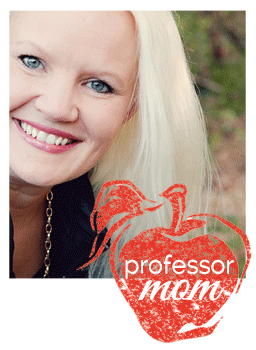Teaching Bible in Your Homeschool
June 29, 2010
For many homeschooling families, Bible education is a double-edged sword. On one hand, parents desire to teach their children about Scripture: its wisdom, values, and revelation of the power of God. On the other hand, I've noticed a hesitation, maybe even a fear associated with bringing children into the Word.
The other day, I was talking with a discouraged homeschooling mom. She and her husband homeschool because they want to raise faithful, honorable, educated children. To that end, they want to make Bible education a priority. Unfortunately, they are only just now developing their own knowledge of the Bible. Neither of them grew up studying the Bible, and the idea of teaching it to their children is intimidating. As she said, "I have no problem teaching math or reading. I know those subjects. But, I grew up in a church that put zero emphasis on Bible study. My husband was the same. We have been trying to study more ourselves, but the responsibility for the faith lives of our kids seems overwhelming when we feel so unequipped."
Do you ever feel this way? Has Bible education been side-lined until you can find the "right" curriculum or until you "know enough"? Maybe you simply need permission to look at this from a different angle.
First of all, Bible education in your homeschool isn't rocket science. God made His Word accessible to those who seek Him. I'm going to be very honest with you. When I spoke with this woman, the first thing I felt was empathy. I have also felt completely unequipped in this area. It has only been in the last 10 years that I really started studying the Bible in earnest. I didn't even know how. But once I decided on a method and committed the time, I was amazed at how much my study enriched my day-to-day life. I still don't understand everything in the Bible. Does anyone this side of heaven? I choose to see that as a plus… there's always something new to learn. Isn't that part of what homeschooling is all about?
Second, while there are many resources out there, realize that they are all tools to help you focus on one thing… the Bible. Don't be overwhelmed by the curriculum and study guides and book options you come across. If you'd like a template, seek one with a philosophy that fits for your family and use it as a tool. My criteria are: 1) no Bible "lite," meaning I am not crazy about programs that are heavy on the arts and crafts and lite on Bible reading. 2) Facts before feelings. I get frustrated with programs that ask young children how they "feel" about Bible passages. Feelings rooted in themselves are highly unreliable. I want my children to focus their efforts at thorough understanding first. 3) Historical context for illumination. The Bible was written from a perspective and in a time about which many of us know next to nothing. I look for concordances and footnotes and commentary that shed light on the 'why' in addition to the 'what.'
Third, real Bible study can be most productive with only the Word of God and possibly a few tools. You don't need every Bible study guide known to man. Simply, make sure you have your Bible at hand and read to your children directly. Even if your curriculum provides you with the text, I would skip it and go straight to God's Word. Your children will begin to realize that the Book is more than just a book. Get a good concordance, commentary, Bible dictionary and maybe a book of historical maps to help your kids see the political and geographical landscape of the Bible. That's all you really need to draw your children deep into the subject.
Fourth, the model of your faith is more important to your children than your familiarity with Hebrew or Greek. When you demonstrate that you are still learning, this will motivate your children as well. When I have my quiet time each morning, my son will sometimes sit next to me and read from his Discoverer's Bible. An example, even an imperfect one, has more impact that you can imagine.
I realize that parents today, more often than not, forget that they are to be models of wisdom to their children. We see this everyday in adults that never seem to want to grow up. But, for those of you who are worried that you haven't got enough wisdom, I just want to remind you that the impact of God's Word on the life of your children comes to them through the Holy Spirit. God will get to them with you, through you and often, in spite of you:-) So, take heart and teach them. He promises to come alongside you in your calling as a parent.
Next time, we'll get into more detail on specific how to's and other resources for Bible education.
Photo by Kym McLeod, www.gisministry.org

Luke Holzmann
June 30, 2010
Absolutely. Well said.
~Luke
Iessik
February 26, 2013
I have this and am planning to use it for next year. I want to do the read alduos from the Book of Virtues and discussion questions. I also am going to encourage my kids to write the quotes in their commonplace books. I think I will leave it up to them what other things they want to do. There are lots of fun activities that tie into each story/virtue. I think the program looks wonderful. I am excited to try it.Blessings,Faith
Comments
Write a comment: